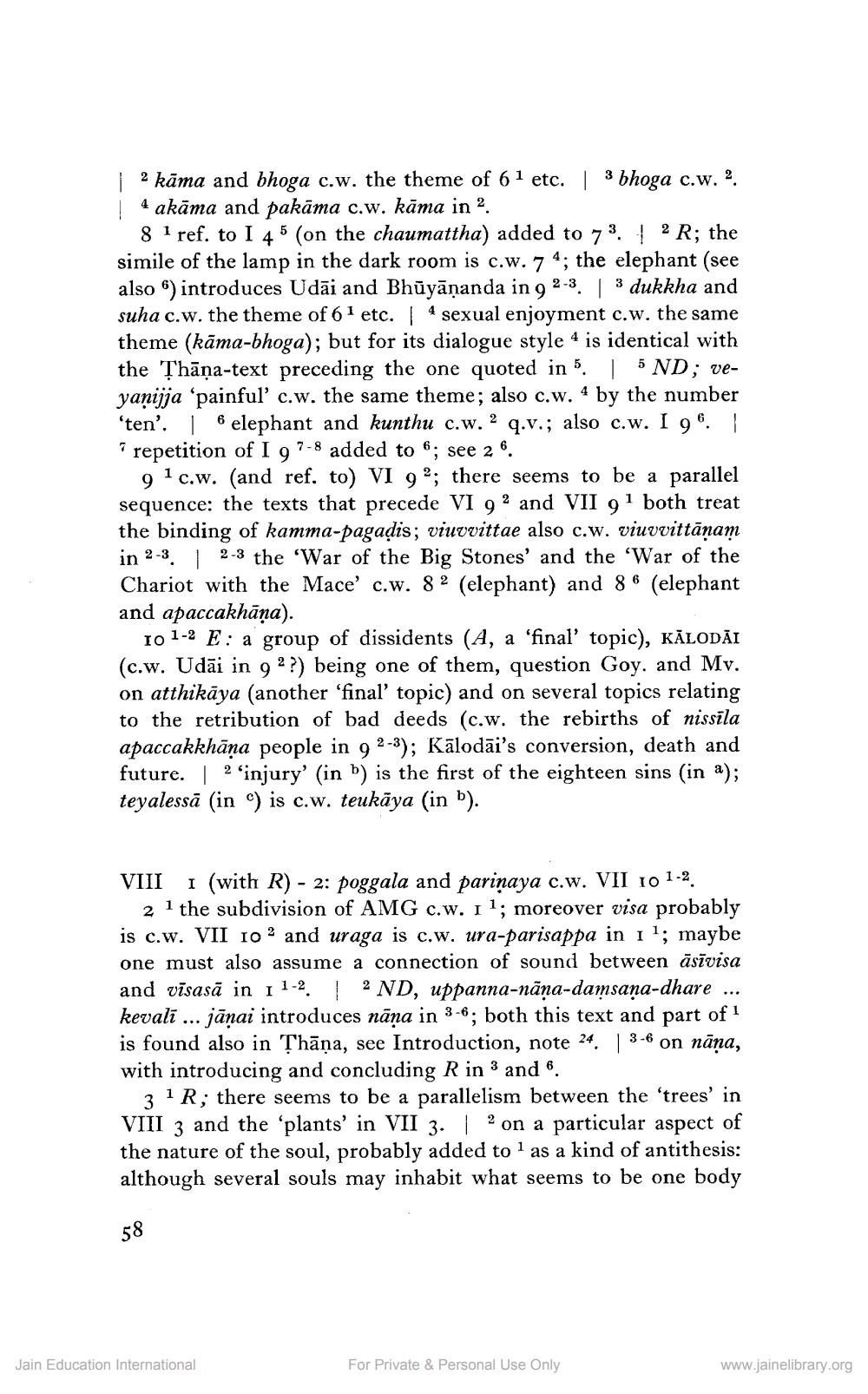________________
3
2 kāma and bhoga c.w. the theme of 61 etc. | bhoga c.w. 2. 4 akāma and pakāma c.w. kāma in 2.
8 ref. to I 45 (on the chaumattha) added to 73.2 R; the simile of the lamp in the dark room is c.w. 7 4; the elephant (see also ") introduces Udai and Bhūyaṇanda in 9 2-3. | 3 dukkha and suha c.w. the theme of 61 etc. | sexual enjoyment c.w. the same theme (kāma-bhoga); but for its dialogue style 4 is identical with the Thaṇa-text preceding the one quoted in 5. | 5 ND; veyanijja 'painful' c.w. the same theme; also c.w. 4 by the number 'ten'. 6 elephant and kunthu c.w. 2 q.v.; also c.w. I 96. | repetition of I 9 7-8 added to 6; see 2 6.
9 1 c.w. (and ref. to) VI 92; there seems to be a parallel sequence: the texts that precede VI 92 and VII 91 both treat the binding of kamma-pagaḍis; viuvvittae also c.w. viuvvittānam in 2-3 2-3 the 'War of the Big Stones' and the 'War of the Chariot with the Mace' c.w. 82 (elephant) and 86 (elephant and apaccakhāna).
10 1-2 E: a group of dissidents (A, a 'final' topic), KALODĀI (c.w. Udai in 9 2?) being one of them, question Goy. and Mv. on atthikaya (another 'final' topic) and on several topics relating to the retribution of bad deeds (c.w. the rebirths of nissila apaccakkhāņa people in 9 2-3); Kalodai's conversion, death and future. 2 'injury' (in b) is the first of the eighteen sins (in a); teyalessa (in ) is c.w. teukāya (in b).
VIII I (with R) 2: poggala and parinaya c.w. VII 10 1-2.
2 1 the subdivision of AMG c.w. I 1; moreover visa probably is c.w. VII 102 and uraga is c.w. ura-parisappa in 1 1; maybe one must also assume a connection of sound between āsīvisa and visasă in I 1-2. 2ND, uppanna-nāṇa-damsaṇa-dhare kevali jāņai introduces nāņa in 3-6; both this text and part of 1 is found also in Thāṇa, see Introduction, note 24. | 3-6 on nāṇa, with introducing and concluding R in 3 and 6.
31R; there seems to be a parallelism between the 'trees' in VIII 3 and the 'plants' in VII 3. | 2 on a particular aspect of the nature of the soul, probably added to 1 as a kind of antithesis: although several souls may inhabit what seems to be one body
58
Jain Education International
For Private & Personal Use Only
www.jainelibrary.org




